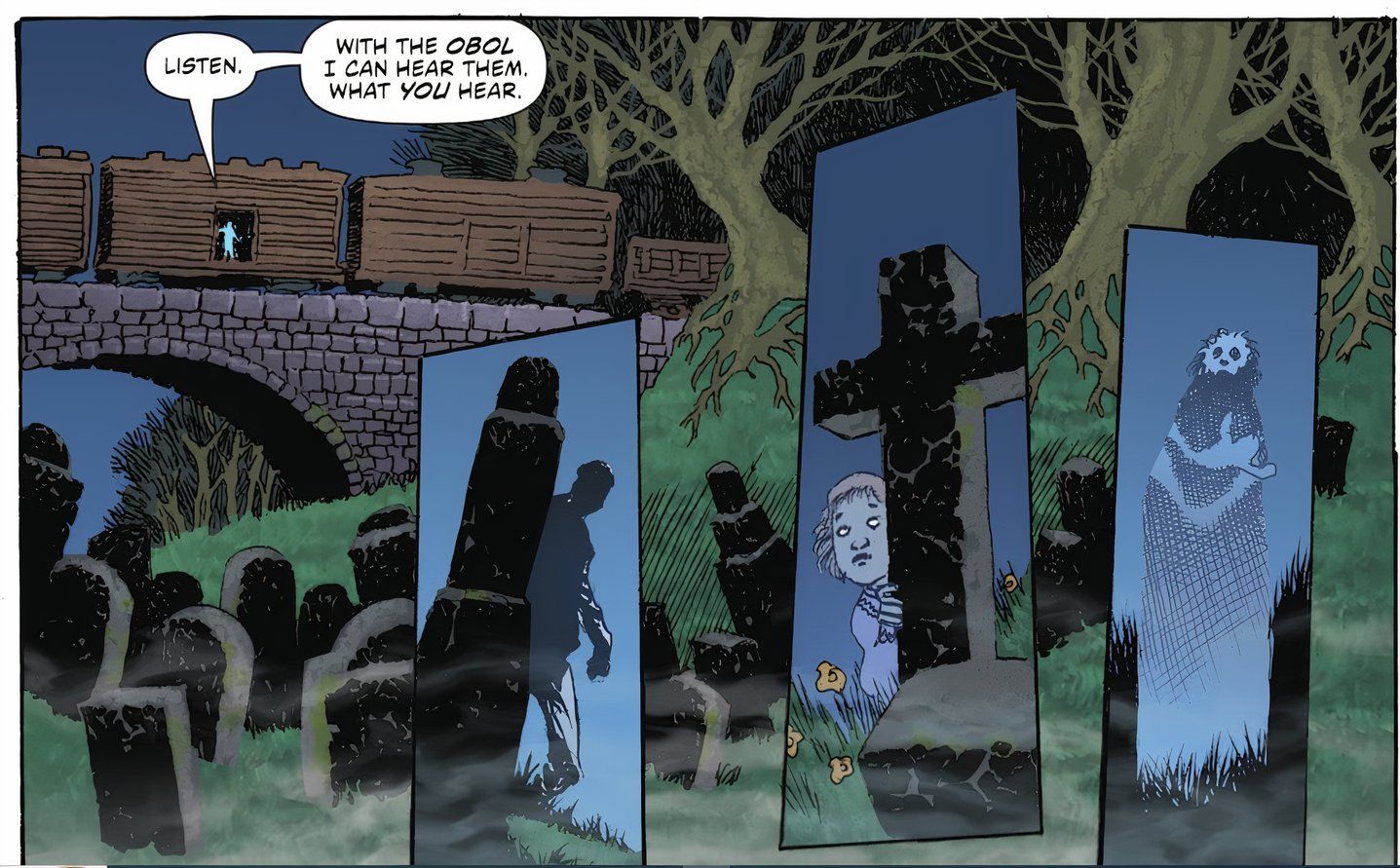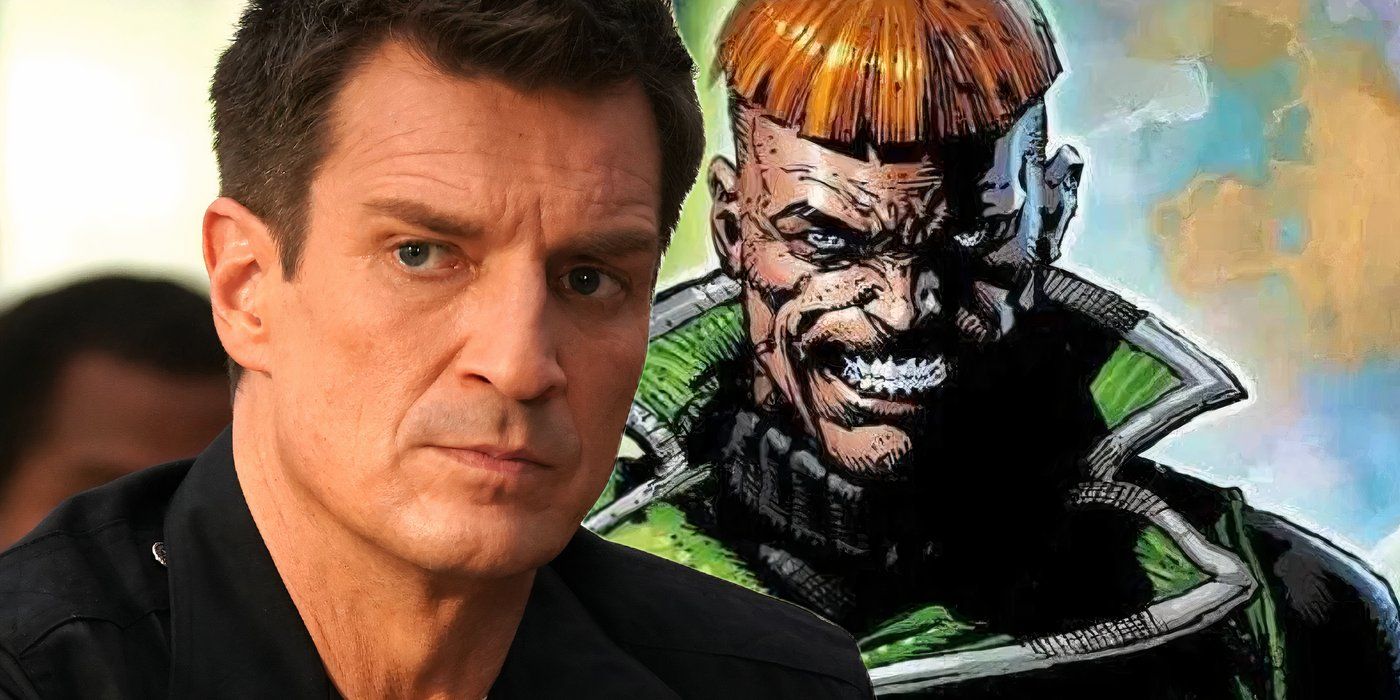Forrest Gump is now 30 years old, and from its toxic love story to its blatant whitewashing of American history, there are a lot of tough realities to face when rewatching it today. When it was released in 1994, Forrest Gump became one of the highest-grossing movies ever made and won six Academy Awards, including Best Picture (beating out Pulp Fiction and The Shawshank Redemption). All these years later, Forrest Gump endures as a staple of pop culture, thanks to its quirky premise, Tom Hanks’ iconic performance in the title role, and its many quotable lines.
It’s not a total disaster to rewatch Forrest Gump today. The acting is phenomenal, director Robert Zemeckis’ seamless blend of fictional storylines and real-life historical events is mostly a fun ride, and Forrest Gump’s soundtrack is full of great needle-drops. But on a rewatch 30 years later, Forrest Gump doesn’t play as the flawless cinematic masterpiece that contemporary critics and audiences lauded it as. There are a lot of problematic elements in the film that haven’t aged well.
10
Forrest Gump Whitewashes American History

Forrest Gump essentially plays as an elementary school history class covering U.S. history of the 20th century. Throughout the movie, Forrest stumbles across just about every major historical event that happened in the United States during his lifetime. He witnesses the Stand in the Schoolhouse Door, the March on the Pentagon, and the Watergate scandal. He meets a handful of presidents, from JFK to LBJ to Richard Nixon, and he even fights in Vietnam.
But Zemeckis doesn’t do justice to the weight of these historical events, because they’re presented from Forrest’s perspective. In simplifying U.S. history, Zemeckis also whitewashes it. By showing American horror stories like segregation and the Vietnam War through the eyes of this lovably naive and optimistic character, Forrest Gump removes all the darkness and complexity and questionable morality from U.S. history.
9
At 142 Minutes, Forrest Gump Outstays Its Welcome
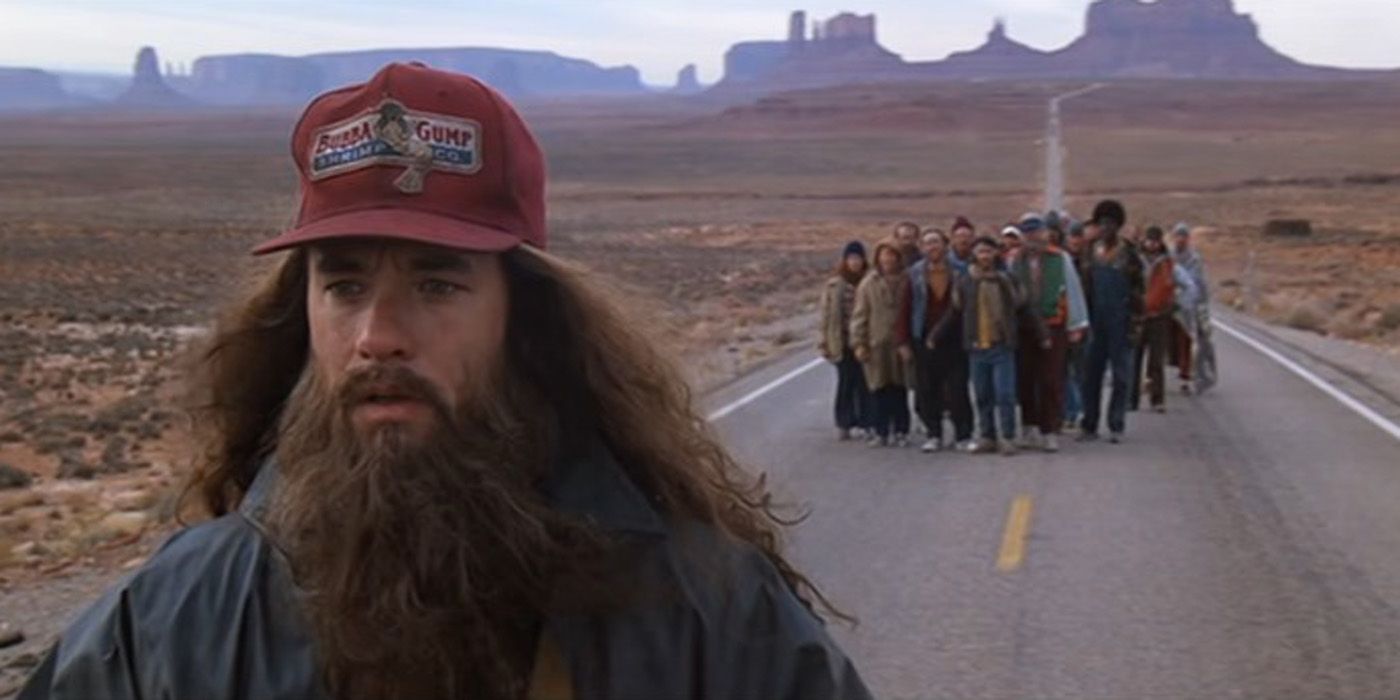
One of the biggest obstacles to a film’s rewatchability is a bloated runtime. If a movie is a lot longer than it needs to be, then it’ll be harder to get through on a second or third viewing. It: Chapter Two didn’t need to be anywhere near three hours long. Django Unchained is less rewatchable than most Quentin Tarantino movies because its tacked-on final act makes the movie longer than it needs to be.
Forrest Gump suffers from this problem, too. At 142 minutes, Forrest Gump is a little too long. It moves at a brisk pace, but there are long stretches of Forrest’s life where nothing really happens and the movie starts to drag. Zemeckis didn’t need to take as long as he did to show the success of Forrest’s shrimping business. The running montage is interminable.
8
Forrest & Jenny’s Love Story Is Really Toxic
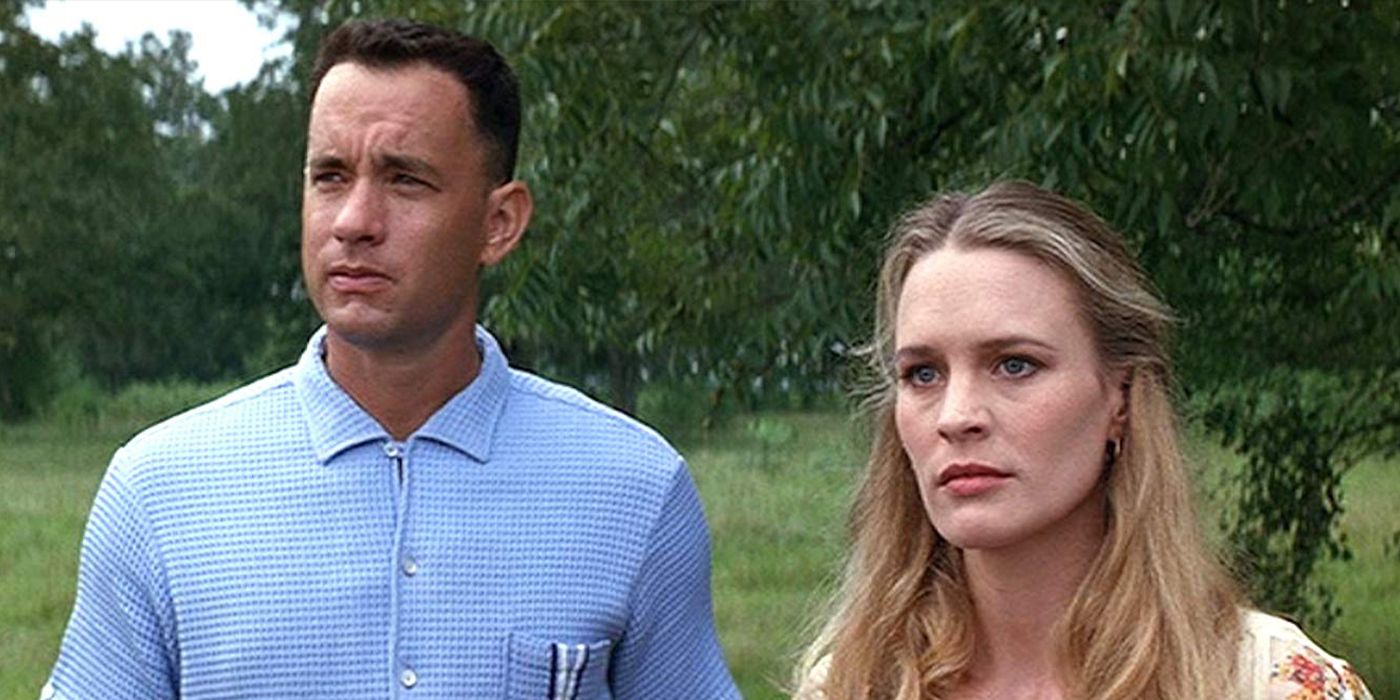
The emotional throughline in Forrest Gump is Forrest’s love for his childhood best friend Jenny. Forrest falls for Jenny early in life and stays in love with her well into their adult years. While Jenny goes off to sow her wild oats, Forrest remains singularly focused on his love for her. The third-act resolution of this romance is when, after many rejections, Jenny finally relents and has sex with Forrest. But that’s not the sweet love story the movie presents it as.
Both Forrest and Jenny act in a very toxic manner throughout this entire so-called love story. Jenny keeps stringing Forrest along throughout their entire lives, while Forrest keeps persisting after Jenny has made it perfectly clear she’s not interested in him romantically. Forrest and Jenny getting together isn’t actually a happy ending in this particular romance.
7
Complex Historical Figures Are Reduced To One-Note Cameos

At times, Forrest Gump can feel like an Avengers movie with cameos from Marvel superheroes swapped out for cameos by American historical figures. He gives Elvis Presley his signature dance move. He witnesses Governor George Wallace trying to block integration at the University of Alabama. He meets more presidents than a Smartless host. Since the movie is jam-packed with these cameos and they only have a few seconds of screen time each, Forrest Gump reduces these complex historical figures to one-note archetypes.
Elvis has been widely criticized for stealing his performing style from Black artists, but the movie supposes that he instead adopted it from Forrest. Abbie Hoffman and the Black Panthers continue to inspire activists to this day, but Forrest Gump presents them as narrow-minded idealists. Historical figures this iconic need to be explored in more depth.
6
Forrest Gump Is A Glaring Example Of Oscar Bait
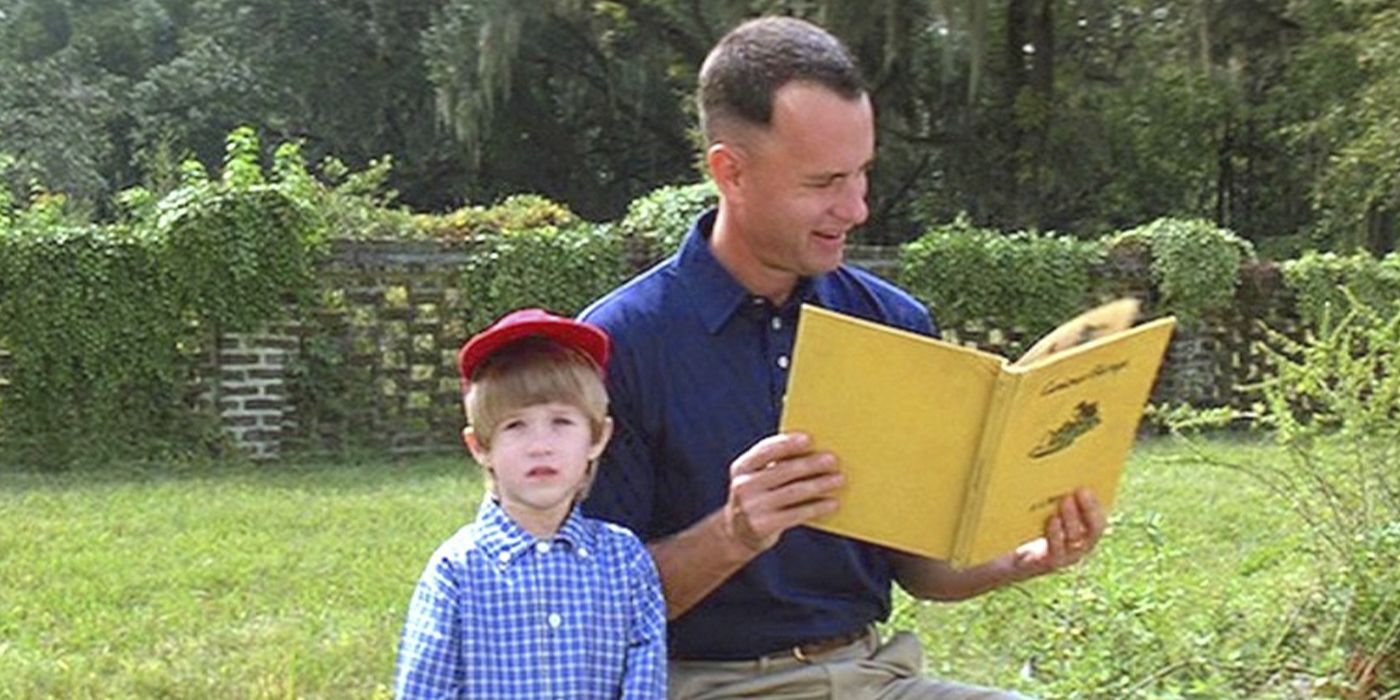
When movies try to appeal to Oscar voters more than they try to appeal to general audiences, they can be annoying to watch. Movies like Crash and Green Book, which take a really heavy-handed, self-congratulating approach to serious social issues, might end up taking home trophies on Oscar night, but they’re almost intolerable to watch. Tom Hanks has been guilty of it a few times; in 2011, he starred in that cloying 9/11 drama Extremely Loud and Incredibly Close.
Rewatching it now, Forrest Gump plays like a really glaring example of Oscar bait. It’s really sweet and saccharin, and it oversimplifies a litany of complicated societal issues. The Oscar-baiting worked – Forrest Gump went home with six Academy Awards, including the top prize – but today, it seems painfully obvious that this was the filmmakers’ main goal.
5
The Movie’s Structural Issues Stand Out On A Rewatch
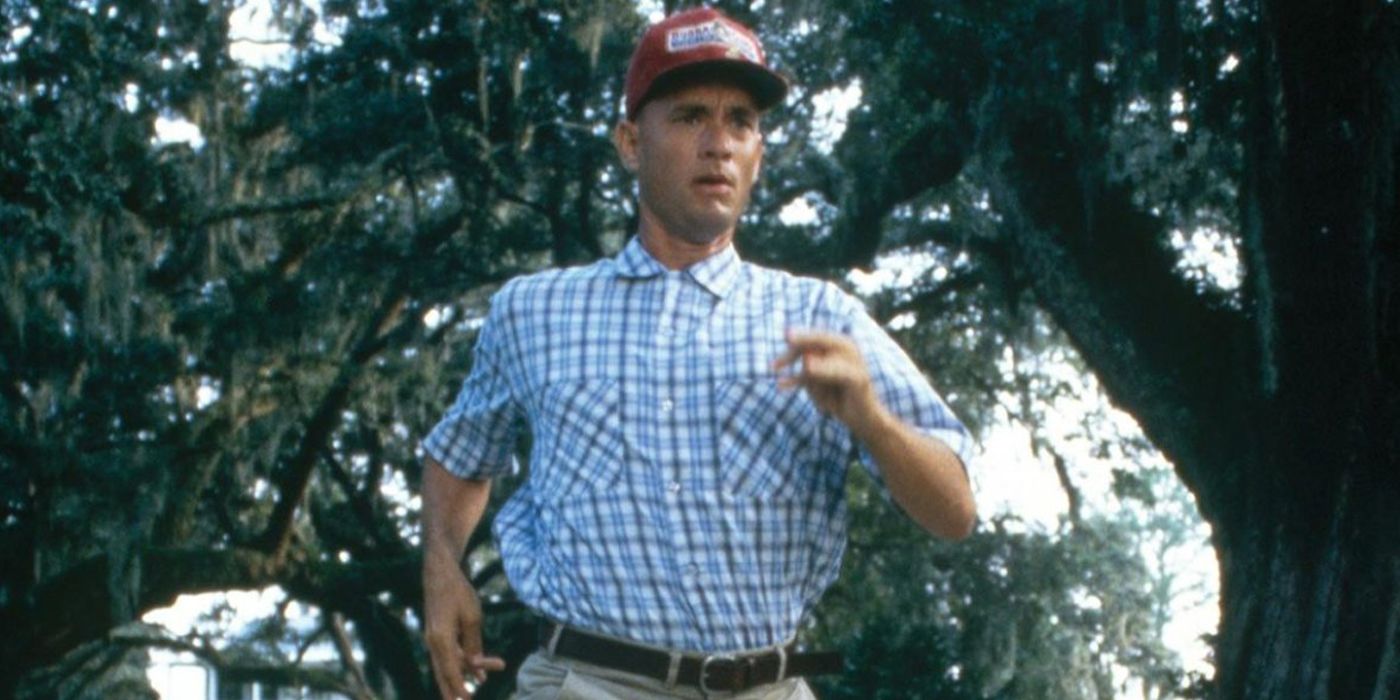
All told, Eric Roth’s script for Forrest Gump is a pretty impressive feat of screenwriting. Forrest Gump is full of quotable dialogue, it tells a reasonably compelling story, and every character from Forrest to Jenny to Bubba to Lieutenant Dan has their own distinctive personality. But from a structural standpoint, the script is a total mess. The storytelling is all over the place, racing between different key events in Forrest’s life with very little connective tissue to smooth out the transitions.
It doesn’t seem so bad on the first viewing; the episodic structure, moving from one chapter to the next, unfolds like a miniseries. But the disjointed chronology and the boring stretches stand out more on a rewatch. With every rewatch, it becomes more and more apparent that the film uses Forrest’s voiceover narration to plaster over the script’s structural flaws.
4
Forrest Gump Is Conservative Propaganda (Whether It Was Intended That Way Or Not)
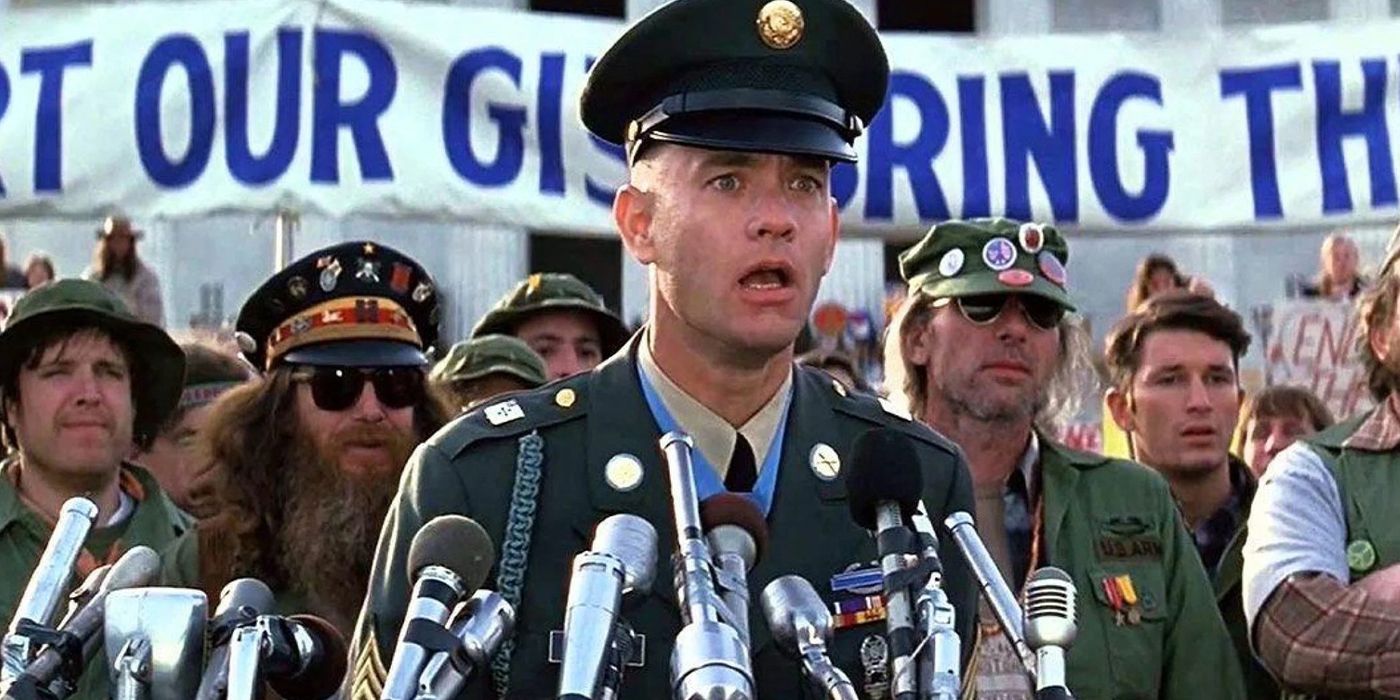
Whether or not it was intentional on Zemeckis’ part, Forrest Gump plays as a pretty straightforward piece of conservative propaganda. It revolves around an average American joe who isn’t particularly intelligent or ambitious. Throughout his entire life, he keeps his head down, does exactly what he’s told, and serves his government. And for doing so, the movie rewards him with fame, fortune, and the American Dream.
Jenny, on the other hand, is depicted as a free spirit who thinks independently, questions authority, and does whatever she wants. And the movie punishes her with misery, abuse, the first ever HIV diagnosis, and a painful death. The message is clear: conservativism and patriotism are the paths to success, while liberalism and independent thinking are the paths to an early grave. It wasn’t so obvious in 1994, but it definitely stands out on a rewatch today.
3
Tom Hanks’ Portrayal Of A Character With An Intellectual Disability Is Problematic In Today’s Climate
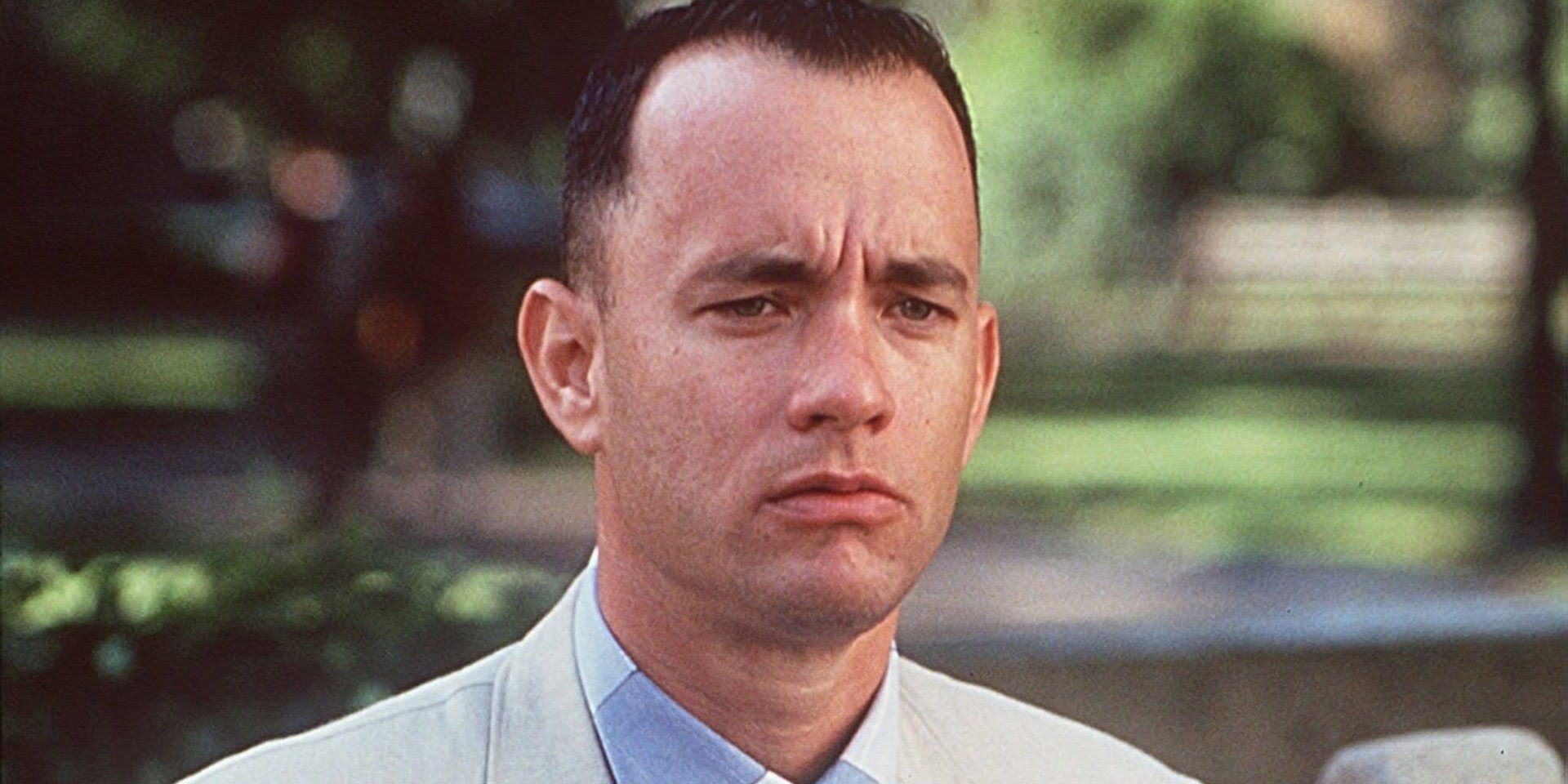
When Forrest Gump arrived in theaters in 1994, no one batted an eye if an actor played a character with an intellectual disability. Dustin Hoffman played a character with autism in Rain Man. Sean Penn played a character with an unspecified learning disability in I Am Sam. When Tom Hanks played the title role in Forrest Gump, he wasn’t criticized for taking an opportunity away from a disabled actor; he was given an Oscar.
These days, it’s met with a lot more criticism when a non-disabled actor is cast as a disabled character. On-screen representation of people with disabilities still has a long way to go, but it is getting better. The Peanut Butter Falcon cast Zack Gottsagen, an actor with Down’s syndrome, to play a character with the same condition. In today’s climate, Hanks’ portrayal of a character with an intellectual disability in Forrest Gump feels a lot more problematic.
2
Forrest’s Entire Story Is Ridiculously Idealized
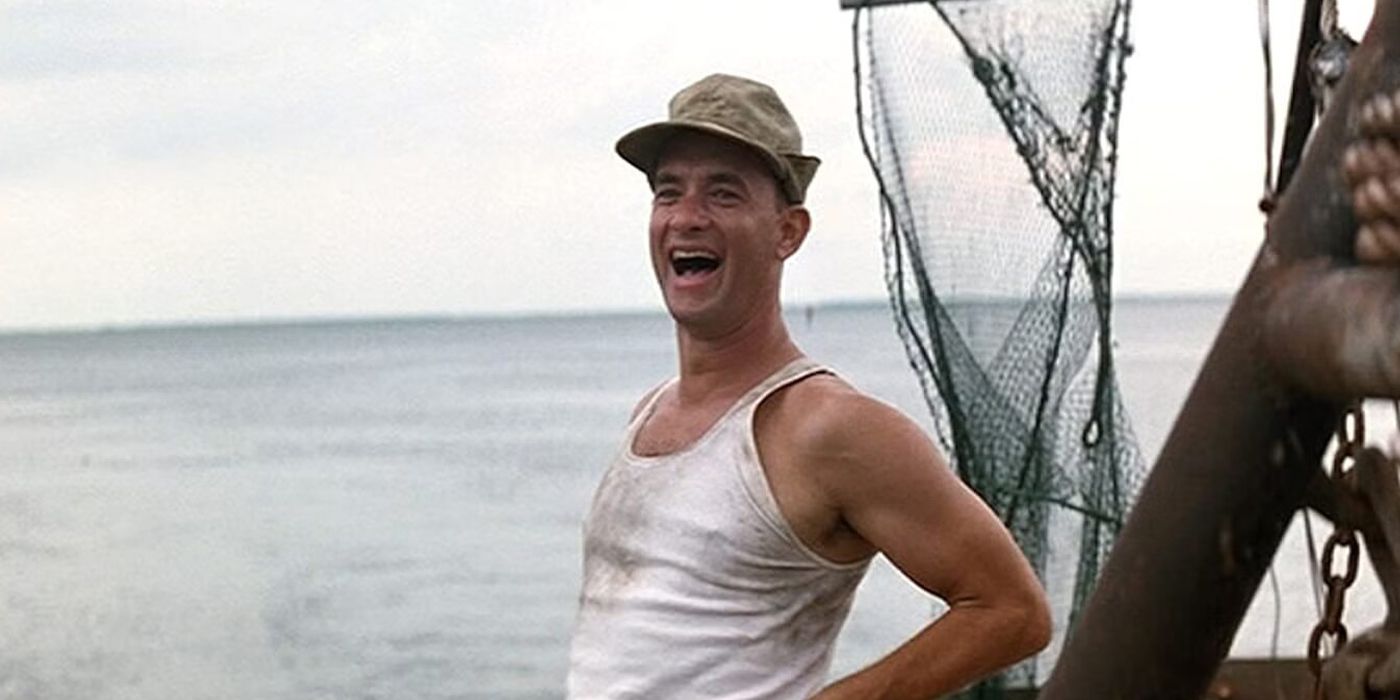
Forrest’s entire life story is absurdly idealized. Usually, the aim with storytelling is to present a character who is flawed, put them through a series of trials that force them to prove themselves and become a better person, and ultimately leave them in a happier and more fulfilled place than when they started. But Forrest Gump doesn’t do any of that; it’s all about a passive protagonist stumbling into the kind of success most people work their whole lives to achieve.
Forrest never really tries very hard at anything and ends up being great at everything. He sees some people playing ping pong, so he decides to give it a go – and promptly becomes an international champion. He gets drafted to fight in Vietnam and ends up becoming a Rambo-style war hero. Forrest finds massive success at every turn and doesn’t really earn any of it.
1
Forrest Gump Is A Really Corny Movie
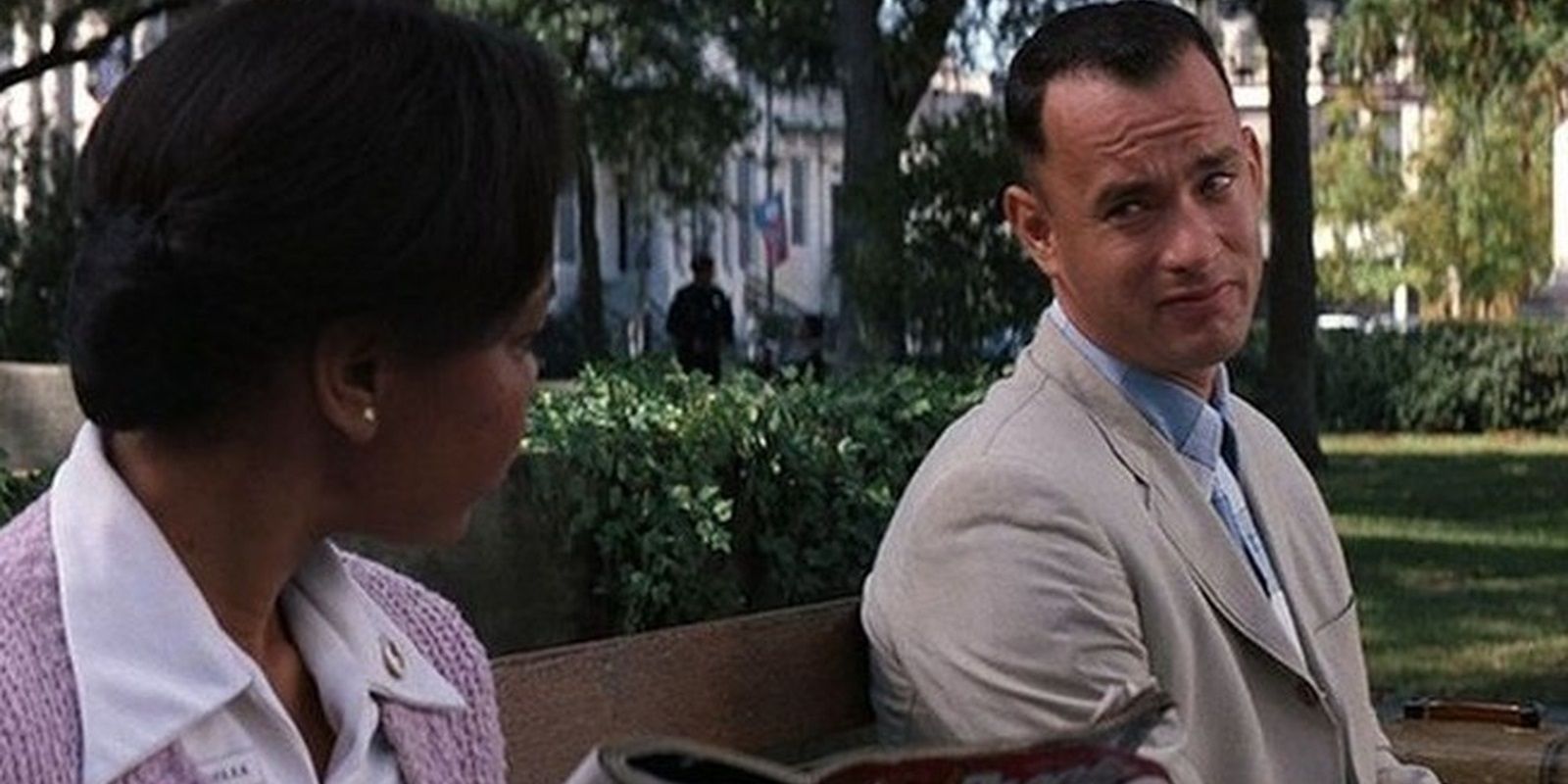
The worst thing about rewatching Forrest Gump today is that it’s just a really corny movie. Obviously, that’s kind of the point. The movie sets out to show America through a simple man’s eyes, and part of Forrest’s simplicity is the naivety with which he views the world. But, whereas other 1994 classics like Pulp Fiction and The Shawshank Redemption manage to tug on the heartstrings without sacrificing their edge, Forrest Gump is a sugary, saccharin cheese-fest from start to finish.
Forrest’s relationship with his mother is nothing short of caring, supportive, and affectionate from beginning to end. Every stranger that Forrest tells his story to is reduced to tears. Even in spite of its trip to the battlefields of Vietnam, there’s no room for nuance or darkness in Forrest Gump; it’s a very superficial movie.



